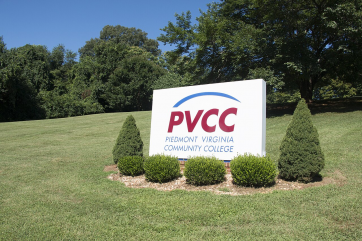How Universities Can Help International Students Enjoy Campus Life and Excel
By David Thompson
Photo : RUT MIIT on Unsplash
Pursuing higher education abroad is the only way many people can pursue programs relating to their dream profession or acquire further knowledge in their field. The experience that comes with it is mostly incredible and eye-opening. Students get the chance to study with other nationals, make new friends, build strong networks, and experience diverse cultures and thoughts among others.
However, studying abroad also comes with various challenges. International students face numerous challenges both on and outside of campus. From acclimatizing to their new environment, and language barriers, to financial challenges and difficulties navigating through their new program, most international students struggle to cope with their life abroad. Some also struggle with how to find a low-budget student accommodation that can reduce their spending. These are very stressful experiences, and without the right support, can have a toll on students' life.
So, how can the numerous schools, colleges, and universities that accept international students help learners in such situations? Below are some ways educators and educational facilities can help international students achieve success.
1. Provide orientation programs
Educational institutions must provide comprehensive orientation programs that seek to address the eminent challenges of international students. The programs cover available academic resources, campus facilities, cultural adaptation, and support services available for students. This helps international students to understand the institution's way of doing things and the steps to take in times of need. With that, students feel more comfortable navigating campus life.
2. Reduce the impact of language barriers
Language barriers are among the top setbacks that affect the progress of international students. Students learning in an educational setting with a language different from their native language may struggle to make progress. Language barriers create a sense of social isolation, limit access to educational resources, and can affect the confidence of students.
Educational institutions and educators can help break language barriers through:
-
Language support programs
Having well-established language support programs can help students learn and adopt the dominant language on campus. The support can be in the form of offering language courses, tutoring, and introducing language exchange programs.
-
Creating multi-lingual course materials
Creating multi-lingual course materials is one of the best ways to address the initial challenges of language barriers. At least, students can have course materials in their native language as they also try to learn the dominant language on campus. Education translation services can be helpful to educational facilities and translate course materials, tests, and documents into other languages.
3. Provide Financial Support
Most international students face financial difficulties as they start their program. This normally results from them underestimating the real cost of their education abroad. Universities can step in to solve this challenge through:
-
Scholarships
Universities can offer merit-based scholarships and grants for international students to reduce their financial burdens. Selection can be based on academic achievement, talent, leadership qualities, and other criteria set by the university. The scholarship and grant can cover tuition fees, accommodation, and living costs. Providing scholarships and grants can attract some of the best international students to the institution.
-
Loan programs
Educational facilities can partner with financial institutions to guarantee loans for international students. These loans should come with lower interest rates and reasonable repayment plans to lessen the financial burdens on students. Needy students can use the loan to pay tuition fees and living expenses.
4. Easy access to accommodation
A safe and comfortable living environment contributes significantly to a positive student experience. However, finding accommodation on and around campus is one of the main challenges international students face. Most have to compete for expensive accommodation facilities, which ends up affecting their finances.
Universities can help by allocating a quota of their accommodation facilities to international students. They can provide information about available on-campus accommodation and offer guidance on the rental process for easy access. That aside, these institutions can connect students with local landlords or housing agencies for an easy rental process.
5. Mentorship programs
Schools must develop mentorship programs where international students can be paired with domestic students or alumni for guidance and support. The local mentors can help their international counterparts navigate campus life, understand cultural norms, and provide academic and career advice. The mentorship programs can be formal or informal but initiated by the school.
6. Health and well-being support
The health of your students is their greatest wealth. Creating a supportive environment for students' well-being is crucial for their overall success and enjoyment of campus life. As such, schools must offer comprehensive health and well-being services, especially for international students. The support can cover information on local healthcare providers, counseling services, and mental health support.
Conclusion
With international students making up a sizable number in most universities, there should various structures that seek their welfare, development, and success. Universities must employ diverse strategies that limit the challenges these students face. Universities should have language support, financial support, health and well-being, mentorship support, and job support, among other plans and programs that improve the lives of international students. This goes in a long way to benefit educational institutions as they attract the best brains.
* This is a contributed article and this content does not necessarily represent the views of universityherald.com









